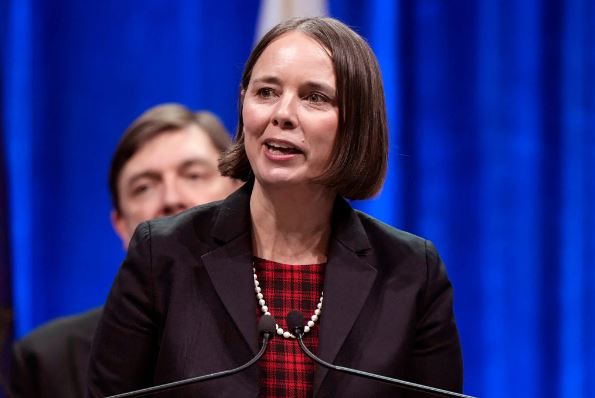Maine’s Secretary of State, Shenna Bellows, has made a significant decision to bar former President Donald J. Trump from the state’s primary election ballot, marking the second instance where a state has denied Trump’s bid for re-election. The basis for this rejection rests on the assertion that Trump’s actions and attempts to remain in power after the 2020 election render him ineligible for another presidential run.
This development closely follows a similar decision by Colorado’s Supreme Court. Bellows, a Democrat, justified her decision by citing Trump’s involvement in the January 6 attack on the U.S. Capitol, aligning with claims made by several citizens who argued that Trump’s actions amounted to inciting an insurrection, thereby violating the 14th Amendment of the Constitution. The situation underscores the ongoing tensions in the United States surrounding democracy, ballot access, and the rule of law, adding pressure on the U.S. Supreme Court to intervene and offer guidance on the obscure constitutional amendment central to blocking Trump’s potential candidacy.
The decision by Maine’s Secretary of State comes at a critical juncture, with the 2024 election looming and increasing pressure on President Biden to address and contain the surge in illegal border crossings at the southern U.S. border. The border situation has become a consistent political vulnerability for Biden, prompting him to dispatch top officials, including Secretary of State Antony J. Blinken, to Mexico City to discuss the root causes of migration with Mexico’s president. The meeting aimed to devise a strategy to handle the escalating crisis, exacerbated by record numbers of border crossings. The border issues are entwined with Biden’s key priorities, and Republicans in Congress are leveraging the situation to demand a new crackdown on immigration in exchange for wartime aid for Ukraine and Israel.
The controversy surrounding Trump’s eligibility adds to the broader landscape of challenges facing the Biden administration. With the first votes of the 2024 election just weeks away, legal battles regarding Trump’s eligibility are intensifying, prompting lawyers on both sides to seek guidance from the U.S. Supreme Court. The legal disputes revolve around an obscure constitutional amendment enacted after the Civil War, specifically Section 3 of the 14th Amendment, designed to disqualify individuals who engaged in insurrection or rebellion from holding office. Courts in various states have issued conflicting rulings, with some upholding Trump’s eligibility and others, like Maine and Colorado, rejecting it. The lack of clarity in the courts and Congress regarding the application of this constitutional criterion has left election officials and judges navigating uncharted waters and awaiting Supreme Court guidance.
The potential Supreme Court ruling on this matter carries significant political implications and would be the most momentous case before the Court since the 2000 election dispute. The conservative shift in the Court, attributed in part to the three justices appointed by Trump, further amplifies the stakes of this decision. Trump and his legal team contend that efforts to bar him from ballots are politically motivated and an assault on American democracy. The challenges against Trump’s ballot access have emerged in over 30 states, primarily through the courts. The legal complexities involved in interpreting the 14th Amendment raise the question of whether the Supreme Court’s decision would swiftly resolve the challenges or prolong the legal battles for months.
In light of these developments, Trump’s spokesperson, Steven Cheung, criticized Maine’s Secretary of State as a “virulent leftist and hyperpartisan Biden-supporting Democrat.” Trump’s legal team is expected to appeal Bellows’s decision within five days, and the outcome will impact the Republican primaries scheduled for March 5 in Maine and Colorado. The legal landscape surrounding Trump’s eligibility remains dynamic, with different states adopting diverse approaches to address the constitutional concerns, setting the stage for potential conflicts and resolutions in the weeks leading up to the 2024 election.

